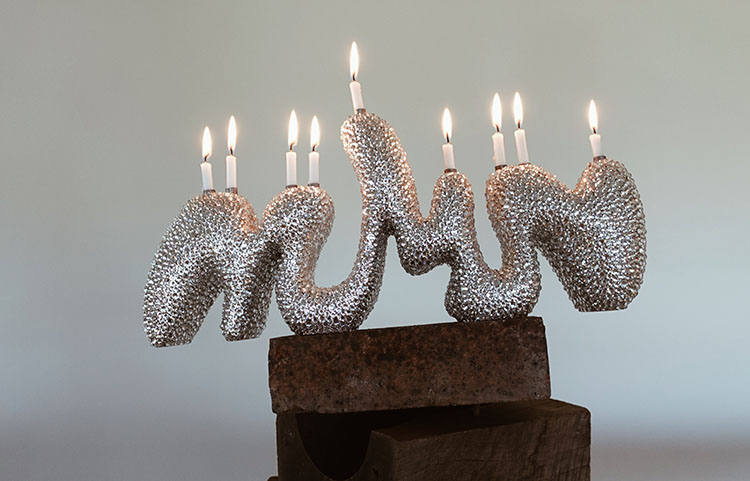Mel Brooks shows no outright sense of shame or victimhood in his humorous films, but his Jewishness is there without ambivalence, according to experts.
“There is a simple pride and comfort in his Jewish skin,” Gabriel Sanders, director of public programs at The Museum of Jewish Heritage in New York, told JNS.org. “It’s cinematic Zionism.”
As a heat wave continues to blanket the New York area this summer, film buffs are taking advantage of a free series of comedies at the Jewish heritage museum called “Mel Brooks on Film: The Spoof is in the Pudding.”
Featuring six award-winning films from the 1970s and 80s, the series runs through Aug. 8. Brooks’ parodies and satires are cult favorites and box office hits, and Brooks is one of only a handful of performers that have won an Emmy, a Grammy, an Oscar, and a Tony award.
Born Melvin Kaminsky in Brooklyn, NY, his father’s family consisted of German Jews from Danzig while his mother’s family were Ukrainian Jews from Kiev. His father died of kidney disease at 34, when Brooks was only 2 years old.
In John Wakeman’s book World Film Directors, Brooks explained his reaction to his father’s death. “There’s an outrage there,” Brooks said. “I may be angry at God, or at the world, for that. I’m sure a lot of my comedy is based on anger and hostility. Growing up in Williamsburg, I learned to clothe it in comedy to spare myself problems—like a punch in the face.”
Over the top and often like the punch in the face Brooks described, the humor in his films is muscular self-confident, as opposed to Wood Allen’s neurotic style.
“We had a Woody Allen series last year and that was successful, so we wanted another iconic Jewish director,“ Sanders told JNS.org. “It’s been interesting to see how different the two are. Brooks’ preoccupation with Nazis is not unique to just one of his movies. It’s not only Nazis he goes after, but the powerful.”
In 2001, Brooks told U.S. News & World Report that he was never crazy about Hitler. “If you stand on a soapbox and trade rhetoric with a dictator you never win,” Brooks said. “That’s what they do so well, they seduce people. But if you ridicule them, bring them down with laughter, they can’t win. You show how crazy they are.”

Mel Brooks in “Young Frankenstein.” Photo courtesy 20th Century Fox.
The Jewish heritage museum’s series includes comic gems such as “Silent Movie,” “History of the World Part I,” “High Anxiety,” “Young Frankenstein,” “Blazing Saddles,” and “To Be or Not to Be.”
According to Wakeman, after World War II, Brooks started working in various Borscht Belt resorts and nightclubs as a drummer and pianist. Another Williamsburg resident, Buddy Rich, taught Brooks how to play drums and he started earning money that way at age 14.
Kaminsky changed his professional name to “Mel Brooks” after being confused with the well-known Borscht Belt trumpet player Max Kaminsky. After a regular comic at one of the nightclubs was too sick to perform one night, Brooks started working as a stand-up, telling jokes and doing movie-star impressions. He also began acting in summer stock in Red Bank, NJ, and did some radio work. He eventually worked his way up to “tummler” at Grossinger’s, the most famous of the Catskill resorts.
Sanders invited Leonard Quart, professor emeritus of cinema at the City University of New York (CUNY) Grad Center and contributing editor of Cineaste, to give a talk before the Brooks film series opened.
“Brooks’ films are never subtle. They cartoon, parody, have no use for good taste, and are laugh-out-loud-funny,” Quart told JNS.org. “He has no use for sacred cows.”
Quart said Brooks’ films use Yiddishisms freely but, more importantly, are deeply embedded in a sense of Jewish victimization and oppression.
“He sees comedy as a relieving of the pain of historical intolerance and of being an outsider,” Quart said. “The films make us laugh and sometimes make sharp satiric points about racism, politics, and religion. Yes, they are zany comedies, but they also can provide trenchant commentary on social mores and history.”
Eventually Brooks found more rewarding work behind the scenes, becoming a comedy writer for television. In 1949, his friend from the Borscht Belt days, Sid Caesar, hired Brooks to write jokes for the NBC series The Admiral Broadway Revue, paying him $50 a week. In 1950, Caesar created the revolutionary variety comedy series, “Your Show of Shows,” and hired Brooks as a writer along with Carl Reiner, Neil and Danny Simon, and Mel Tolkin.
Brooks never forgot what Caesar did for him and cast him in his film, “Silent Movie.”
“When we showed ‘Silent Movie’ the other night, he’s merciless with big money. Much of the movie has Mel going around to different stars trying to get them to be in his silent movie. He makes fun of them. He really is a kind of equal opportunity comic,” Sanders said.
Still, some may claim that Brooks’ films continue to push the boundaries of good taste. Quart agrees with this claim. “Yes, he can be vulgar, scatological, and outrageous. But for me, his films are too innocent, even sweet-natured, to draw blood, even though Brooks believes ‘comedy is when you walk into an open sewer and die.’”
To most, however, Mel Brooks’ films remain relevant.
“How do we define comedy’s relevance? If it’s able to make us laugh, escape our lives, and, at its best, make astute sharp social and psychological points, it’s relevant. I wouldn’t say all of Brooks’ work meets those criteria, but he does meet some of them,” Quart said.




















 More news and opinions than at a Shabbat dinner, right in your inbox.
More news and opinions than at a Shabbat dinner, right in your inbox.